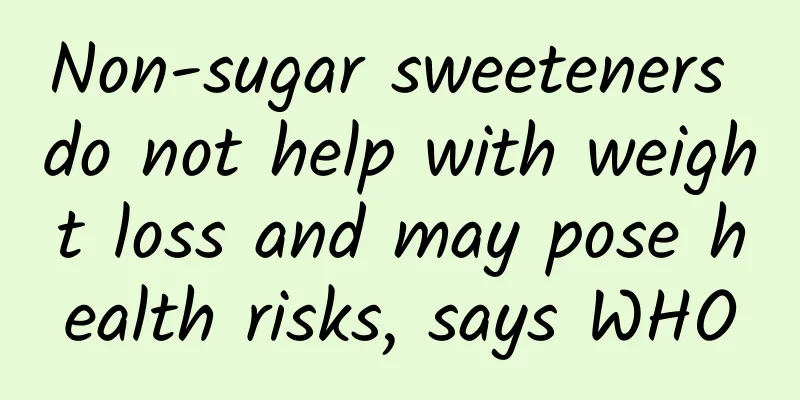Non-sugar sweeteners do not help with weight loss and may pose health risks, says WHO

|
The World Health Organization reports that non-sugar sweeteners will not make you lose weight and may be associated with health risks in the long term. Image source: Getty Images Non-sugar sweeteners (NSS) should not be used for weight loss, according to new guidelines from the World Health Organization (WHO). The United Nations (UN) health agency's report also suggests that long-term use of such sweeteners may pose health risks. The new recommendations are based on a systematic review of the evidence, the WHO said on May 15. The review included more than 280 studies on low- and no-calorie synthetic sweeteners (such as aspartame) and natural extracts (such as stevia). The findings showed that using NSS instead of sugar does not have any long-term benefits for reducing body fat in adults or children. The review also suggests that long-term use of these sweeteners may be associated with a slightly increased risk of type 2 diabetes, cardiovascular disease, and premature death from any cause in adults. However, the WHO noted that the evidence for a link between long-term NSS use and risk of disease or early death is not yet conclusive, in part because of complex patterns of NSS use and underlying characteristics of study participants that could have confounded the review's findings. Because of this, the WHO labeled its recommendation "conditional," meaning there is still uncertainty about the benefits of implementing it. "Replacing free sugars with NSS will not help control weight in the long term," said the director of WHO's Department of Nutrition for Health and Development in a statement, adding that people need to consider other ways to reduce their intake of free sugars, such as eating foods that contain natural sugars, such as fruit, or unsweetened foods and drinks. The World Health Organization says its guidelines on sweeteners apply to everyone except people with diabetes. In addition, the recommendations do not apply to medicines and personal care products, such as toothpaste, which may contain small amounts of sweeteners added to make them more palatable. In its review, the health agency looked at studies that compared the weight of people who consumed regular sugar with those who consumed sweeteners. The reviewed randomized controlled trials (gold standard trials that compare with a placebo group) suggest that replacing sugar intake with NSS may reduce weight in the short term without affecting cardiovascular or metabolic health. However, long-term observational studies have shown that chronic sweetener consumption is associated with an increased likelihood of obesity and lower body mass index (BMI), an indirect estimate of body fat, as well as an increased risk of certain diseases and early death. The guidelines note that people who don't eat much sugar in the first place are unlikely to experience any weight loss if they switch to sweeteners. The WHO says they may only experience potential adverse effects from using NSS. WHO assessed the overall certainty of the evidence it reviewed as “low.” The agency called for further research to determine which mechanisms NSS may be involved in negatively affecting human health. Still, the health organization said potential links between NSS and human disease should be taken seriously because possible mechanisms for these adverse effects have been discovered and validated in animals. These mechanisms include changes in taste perception, the release of metabolic hormones in the body and the gut microbiome, although again, it is unclear whether changes seen in lab mice would translate to humans. Source: Chongqing Tianji Network Co., Ltd. Source: Live Science "Non-sugar sweeteners don't help with weight loss and may come with health risks, WHO says" Statement: Except for original content and special notes, some pictures are from the Internet. They are not for commercial purposes and are only used as popular science materials. The copyright belongs to the original authors. If there is any infringement, please contact us to delete them. |
<<: Why do I keep coughing after catching a cold?
Recommend
What is the formula for Chinese medicine to remove freckles?
Spots seem to have become an eternal concern for ...
How long does it take to recover from an ectopic pregnancy?
When a woman has an ectopic pregnancy, surgery mu...
What is the reason for yellow leucorrhea
For women, gynecological diseases are a common ca...
Will you feel irritable in the early stages of pregnancy?
Women also have many symptoms in the early stages...
How to detect early pregnancy with ovulation test strips?
Ovulation test strips can test early pregnancy, b...
Falling after medical abortion
If a woman chooses to have an artificial abortion...
How to check the cesarean section incision
Most women choose cesarean section when giving bi...
Is it necessary to get the cervical vaccine?
In real life, there are three types of cancer tha...
There are many types of endometrial cancer, and each type is treated differently.
Author: Pan Zhiyin, deputy chief physician of Fos...
What are the benefits and functions of cherry tomatoes? How to wash cherry tomatoes
With the improvement of living standards, compute...
Do the Yangtze River and the Yellow River flow from west to east? Are there any dangerous creatures in the Yangtze River?
The Yangtze River Basin is the third largest rive...
Exploring the mystery of gastric cancer: from causes to prevention, an article gives you a comprehensive understanding
Gastric cancer, as one of the most common maligna...
Why are there no live saury? Trivia about saury
Saury is one of the most representative autumn in...
What to do if the forehead is uneven after hyaluronic acid injection
A round forehead will give people a better impres...









